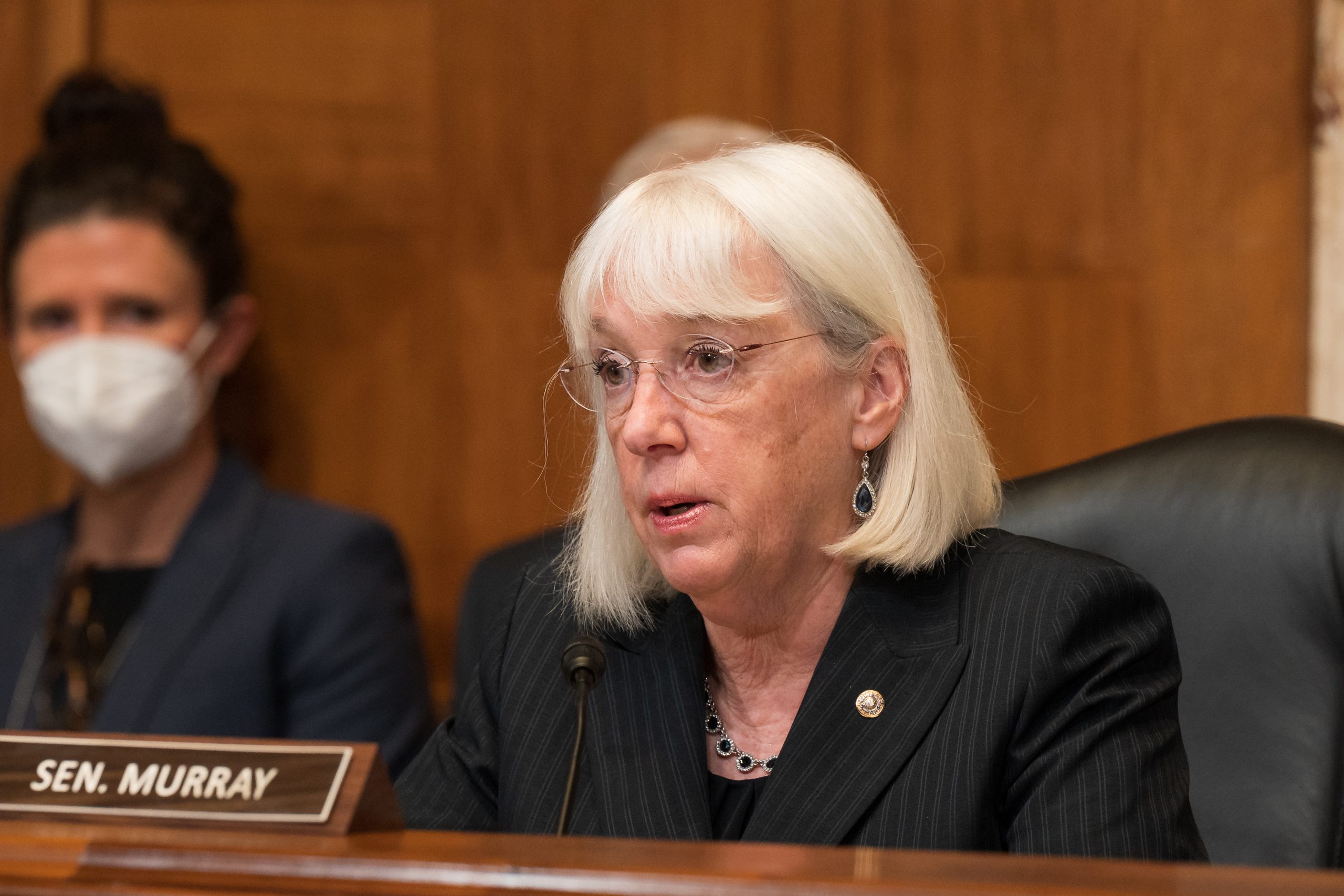New bipartisan bill would help address nursing shortages in military health care system that impede high-quality care for servicemembers and families
Over 85 percent of DoD facilities reported nursing shortages during the pandemic, JBLM’s Madigan Army Medical Center in Tacoma has a 38 percent vacancy rate for civilian positions
Washington, D.C. – Today, U.S. Senators Patty Murray (D-WA), Chair of the Senate Appropriations Committee, and Ted Budd (R-NC), and U.S. Representative Marilyn Strickland (D-WA-10) introduced new bipartisan, bicameral legislation that would help address nursing staff shortages in the military health care system as personnel shortages remain a major issue for patients and staff at Department of Defense (DoD) healthcare facilities.
The Members’ Retain Educated Workers and Registered Nurses Developing (REWARD) Experience Act would help the military health care system retain experienced nurses by removing unnecessary hiring requirements that currently incentivize nurses in the system to leave for the private health care sector after obtaining advanced degrees. Specifically, the legislation would empower hiring officials to waive certain experience requirements to promote qualified and skilled nurses already working in the military health care system who receive higher levels of licensure, allowing them to receive recognition for their service and the expertise gained in their previous position. This bill provides a straightforward, reasonable fix to current laws that force nurses who obtain advanced certifications and want to stay in the military health care system to take a pay cut for greater responsibility. More information is HERE.
The nationwide nursing shortage across the U.S. greatly impacts the military health care system and the ability of servicemembers and their families to receive timely and high-quality care, something Defense Health Agency Director Lieutenant General Telita Crosland has publicly acknowledged. Over 85 percent of DoD facilities reported nursing shortages during the COVID-19 pandemic and in January 2023, 80 percent of civilian vacancies in the Defense Health Agency were health care personnel positions. Madigan Army Medical Center on Joint Base Lewis-McChord in Tacoma had the largest percentage of vacant positions—38 percent, or 1,615 personnel—of all the Military Treatment Facilities sampled. The Bureau of Labor Statistics projects that more than 275,000 additional nurses will be needed across the U.S. between 2020 to 2030.
“Our new bipartisan legislation would provide a common-sense fix to incentivize nurses to stay in the military health care system, where their skills are so important to getting servicemembers and their families timely access to high-quality care,” said Senator Murray. “Staffing shortages are a challenge for health care facilities across the country, and we must keep working to find ways to retain qualified and experienced nurses in military health care facilities and ensure servicemembers and their families get the care they deserve—I’m proud to work with my colleagues on both sides of the aisle to get that done.
“As our country faces a shortage of qualified nurses, this bipartisan proposal provides a common-sense fix that would cut through bureaucratic requirements to help the military keep dedicated healthcare professionals on the job without taking a pay cut,” said Senator Budd. “I’d like to thank Senator Murray for co-leading this bill with me.”
“The bicameral, bipartisan REWARD Experience Act of 2023 will allow skilled and dedicated nurses to stay in the Military Health System while they pursue higher education,” said Representative Strickland. “This change retains nursing talent that wish to become more skilled and prioritizes patient care for servicemembers, their dependents, and veterans.”
The REWARD Experience Act of 2023 would empower the Military Health System to retain skilled, dedicated nurses as they pursue higher education and more responsibility. Specifically, the legislation would:
- Provide the hiring manager within the Department of Defense medical facility the authority to wave general schedule work experience standards for nursing positions if:
- the nurse is currently working within the Department of defense medical facility under a lower level of licensure;
- the nurse has achieved a higher nursing degree from an accredited nursing educational program; and
- they deem the nurse capable of safely and responsibly performing the duties of the higher position;
- Require verification from human resources that the candidate otherwise meets the qualifications of the position.
This legislation is supported by the National Military Family Association (NMFA) and Military Officers Association of America (MOAA).
“MOAA supports the REWARD Act that will help military hospitals and clinics retain experienced civilian nurses as they further their education and achieve higher levels of licensure. MOAA’s spring advocacy campaign last year raised concerns about health care workforce challenges, so we appreciate the REWARD Act will help DoD retain experienced nurses by addressing a barrier in hiring policy,” said Military Officers Association of America (MOAA) President and CEO Lt Gen Brian Kelly, USAF (Ret). “We thank Senator Patty Murray and Senator Ted Budd for their leadership on military treatment facility staffing challenges and their support of military medicine.”
“Service members and military families need and deserve the very best health care. Nurses are an essential part of that equation,” said Besa Pinchotti, CEO of the National Military Family Association (NMFA). “The REWARD Experience Act is commonsense legislation that incentivizes nurses to remain with the military health system as they progress in their careers. We are grateful to Senators Murray and Budd for their leadership on this issue.”
Senator Murray, a senior member and former Chair of the Senate Committee on Health, Education, Labor and Pensions (HELP), has been consistently focused on addressing the health care workforce shortage and is fighting to protect investments that support health care workers and the entire health care system. Murray leads bipartisan legislation that would lower the tax burden for nurses in the public sector and has repeatedly emphasized the importance of listening to health care workers and taking action in every way possible to address the steep challenges they face.
A one-pager with more details on the legislation is HERE.
The full text of the legislation is HERE.
###


